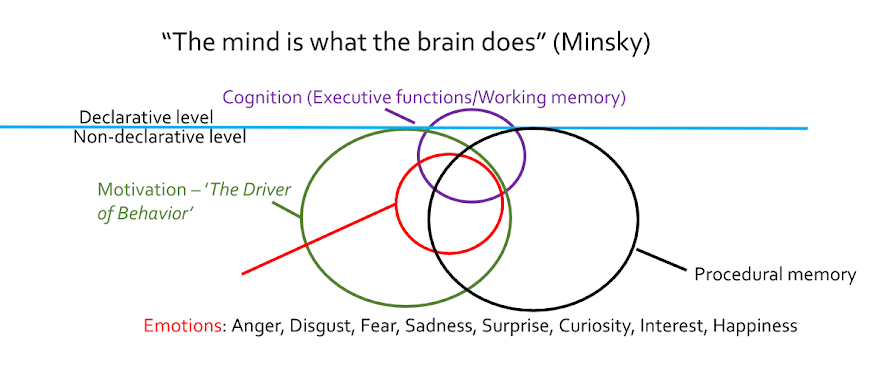Please support the blog via Swish (Sweden), MobilePay (Finland) or Wise.
These images may represent the event.
 |
| Here, the woman is leaving the house. To the left, a Buck is having a rest, probably basking in the sun. |
 |
| This image shows the Buck. It was surprised by the woman's sudden arrival, and fell as it did what prey do in situations like this - run! |
 |
| This image shows a dog running towards the buck to defend his/hers owner. The dog is also barking. |
 |
| The woman, who is yelling all the time, attacks the Buck, probably for the purpose of protecting her dog. |
 |
| The Buck responded the way animals do when being attacked, it lowered Its head and pushed the woman back with Its antlers. |
I wrote the following:
But this is my interpretation of the event. Someone else perceived something different:
The other person wrote:
This is actually an interesting event which mirrors ordinary life; whatever the video shows, it is always in the eye of the beholder. And in this case, two rather disparate interpretations.
And as in ordinary life, there are at least three styles of communications to deal with the situation.
We can use polemics (verbal war) to put blame on our opponent.
We can use argumentation to try to convince our opponent that 'my view' is the right view.
We can use reasoning to exchange ideas through language.
Polemics is used by politicians, and I assume few people think it is very fruitful. Arguing that my viewpoint is the better viewpoint is not very fruitful either. The most fruitful alternative is reasoning because reasoning honors what is known as viewpoint diversity.
Tribalism is the state of being organized by, or advocating for, tribes or tribal lifestyles. Human evolution has primarily occurred in small hunter-gatherer groups,[disputed – discuss] as opposed to in larger and more recently settled agricultural societies or civilizations. With a negative connotation and in a political context, tribalism can also mean discriminatory behavior or attitudes towards out-groups, based on in-group loyalty (Wikipedia).
Motivated reasoning is the phenomenon in cognitive science and social psychology in which emotional biases lead to justifications or decisions based on their desirability rather than an accurate reflection of the evidence. It is the "tendency to find arguments in favor of conclusions we want to believe to be stronger than arguments for conclusions we do not want to believe" (Wikipedia; Kunda, 1990).
Here's a link to the video
Stöd gärna bloggen via Swish (Sverige), MobilePay (Finland) or Wise.
Mer om min expertis:
Executive coaching for CEOs/managers and workshops to facilitate Organizational Performance, Learning, and Creativity for Problem Solving | Lectures: Nutrition for physical and mental health | Course/lecture: children's emotional and social adjustment and cognitive development | Language training - Swedish | Academy Competency | CV | Teaching skills and experience | Summary of research project | Instagram | Linkedin | YouTube-channel | TikTok | Twitter
I responded:
The buck didn't go after the little dog. It pointed its horns against it (I know, it probably should be antlers).
The other person wrote:
Look at the video again, you can clearly see the Buck go after the dog.My response:
The other person wrote:
This is actually an interesting event which mirrors ordinary life; whatever the video shows, it is always in the eye of the beholder. And in this case, two rather disparate interpretations.
And as in ordinary life, there are at least three styles of communications to deal with the situation.
We can use polemics (verbal war) to put blame on our opponent.
We can use argumentation to try to convince our opponent that 'my view' is the right view.
We can use reasoning to exchange ideas through language.
Polemics is used by politicians, and I assume few people think it is very fruitful. Arguing that my viewpoint is the better viewpoint is not very fruitful either. The most fruitful alternative is reasoning because reasoning honors what is known as viewpoint diversity.
Truth is a process, not just an end-state. The Righteous Mind was about the obstacles to that process, such as confirmation bias, motivated reasoning, tribalism, and the worship of sacred values (Haidt).Confirmation bias is the tendency to search for, interpret, favor, and recall information in a way that confirms or supports one's prior beliefs or values.[1] People display this bias when they select information that supports their views, ignoring contrary information, or when they interpret ambiguous evidence as supporting their existing attitudes (Wikipedia; Nickerson, 1998).
Tribalism is the state of being organized by, or advocating for, tribes or tribal lifestyles. Human evolution has primarily occurred in small hunter-gatherer groups,[disputed – discuss] as opposed to in larger and more recently settled agricultural societies or civilizations. With a negative connotation and in a political context, tribalism can also mean discriminatory behavior or attitudes towards out-groups, based on in-group loyalty (Wikipedia).
Motivated reasoning is the phenomenon in cognitive science and social psychology in which emotional biases lead to justifications or decisions based on their desirability rather than an accurate reflection of the evidence. It is the "tendency to find arguments in favor of conclusions we want to believe to be stronger than arguments for conclusions we do not want to believe" (Wikipedia; Kunda, 1990).
Here's a link to the video
Stöd gärna bloggen via Swish (Sverige), MobilePay (Finland) or Wise.
Mer om min expertis:
Executive coaching for CEOs/managers and workshops to facilitate Organizational Performance, Learning, and Creativity for Problem Solving | Lectures: Nutrition for physical and mental health | Course/lecture: children's emotional and social adjustment and cognitive development | Language training - Swedish | Academy Competency | CV | Teaching skills and experience | Summary of research project | Instagram | Linkedin | YouTube-channel | TikTok | Twitter





No comments:
Post a Comment